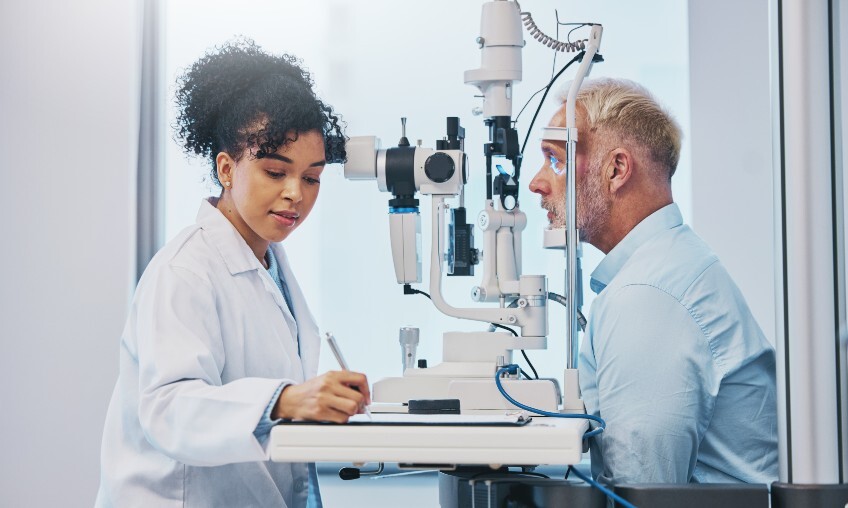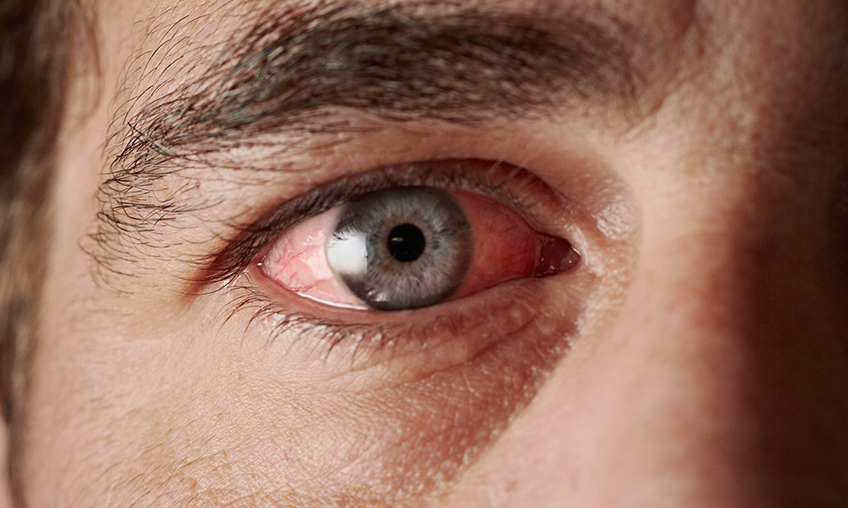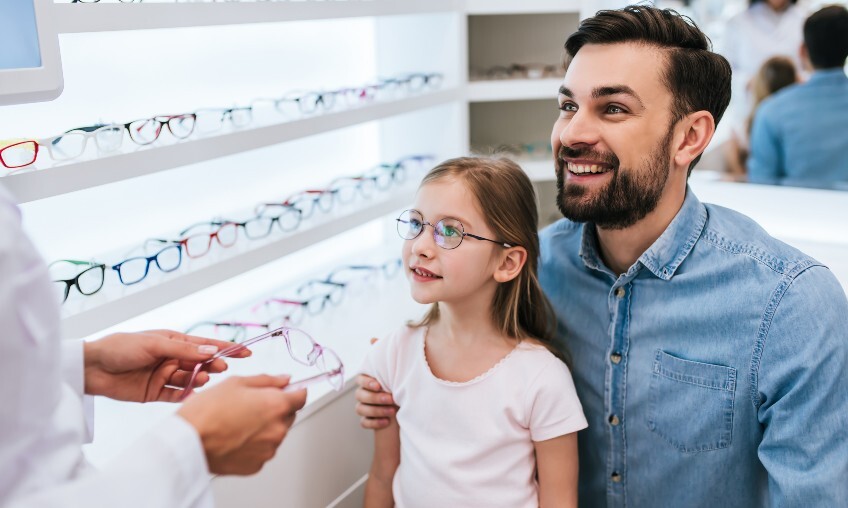
By John-Michael Cummings, OD
Conjunctivitis — often called pink eye — is inflammation of the conjunctiva in one or both eyes, caused by an eye infection or allergies, according to the American Academy of Ophthalmology (AAO). The conjunctiva is the lining of your eyelid and the thin, clear layer of tissue over the whites of your eyes.
If one or both of your eyes are red, swollen, watery and/or have eyelid crusts that form while you sleep, you may have pink eye. Blurry vision, itchiness, sensitivity to light and a gritty feeling in one or both eyes are other signs of pink eye, says the AAO.
There are three major reasons for conjunctivitis, which is very contagious.
How Do You Cure Pink Eye?
How you cure pink eye depends on what causes it. To identify why you have pink eye and how to help you, your eye doctor will examine your eyes and might swab your conjunctiva to get a sample to test.
There are three major causes of conjunctivitis, says the AAO. They are:
- Viral conjunctivitis, the most common cause of pink eye, is very contagious. It usually makes eyes red and watery and feel like they’re burning. This type of pink eye eventually goes away by itself typically within seven to 14 days, so you could say that time is the ultimate viral conjunctivitis treatment. To ease discomfort while you have viral conjunctivitis, your eye doctor may prescribe lubricating and/or decongestant drops, and sometimes mild steroid (anti-inflammatory eye drops.
- Bacterial conjunctivitis, also highly contagious, causes soreness and redness. Bacterial infections often cause a lot of sticky pus in the eye, but sometimes there is little or no eye discharge. A prescription antibiotic, usually in the form of eyedrops, is the most common bacterial conjunctivitis treatment.
- Allergic conjunctivitis doesn’t spread between people. It comes from an allergic reaction to things that usually float in the air and requires a different treatment approach. Read my advice about eye allergies here.
Other forms of pink eye are less common. For example, ongoing allergies or asthma can lead to a more serious condition called vernal conjunctivitis, according to the National Library of Medicine. And people who wear contact lenses may be likely to have another allergic condition known as giant papillary conjunctivitis (GPC), the Cleveland Clinic says. The Cleveland Clinic also notes that GPC “can also happen if you have an artificial eye or stitches in your eye.”
Steps to Help Pink Eye and Its Symptoms
Using over-the-counter artificial tears can help reduce discomfort from conjunctivitis. To relieve crustiness of the eyelids, soak a clean cloth in warm water, then gently press onto your closed eyes, advises the National Library of Medicine. If you prefer a cool compress, the AAO says that’s fine, too.
Other ways to relieve pink eye include:
- Do not smoke or vape
- Avoid secondhand smoke, direct wind and air conditioning
- Use a humidifier, especially in the winter
- Limit medicines that may dry you out and worsen your symptoms (for example, decongestants)
- Gently wash your eyelashes with warm water once every day
If you have symptoms from an eye infection that don’t seem to get better after three or four days, you should see an eye doctor to get a diagnosis and treatment. Also, visit your eye doctor right away especially if:
- Your vision is blurry
- Light hurts your eyes
- You have eye pain that is severe or gets worse
- Your eyelids or the skin around your eyes become swollen or red
- If you use contact lenses on an overnight wearing schedule
- You have a headache along with other symptoms
Prevent Conjunctivitis
Bacterial and viral pink eye are highly contagious. To prevent getting an eye infection, avoid direct contact with an infected person's bodily fluids, especially hand-to-eye contact, says the AAO.
The National Library of Medicine recommends keeping these good hygiene habits to prevent conjunctivitis:
- Wash your hands often
- Keep hands away from your eyes
- Handle and clean contact lenses properly
- Change pillowcases often
- Don’t share eye makeup and replace it regularly
- Don’t share towels or handkerchiefs
Your vision is precious, so EyeQuest, part of Sun Life U.S., works to protect it. Our large, nationwide network proudly serves close to a million members. Find an eye-care professional here.
 Preventistry Pulse Image
Preventistry Pulse Image
PREVENTISTRY PULSE
The newsletter designed for anyone who wants to improve oral health for themselves, their families, customers or communities.





